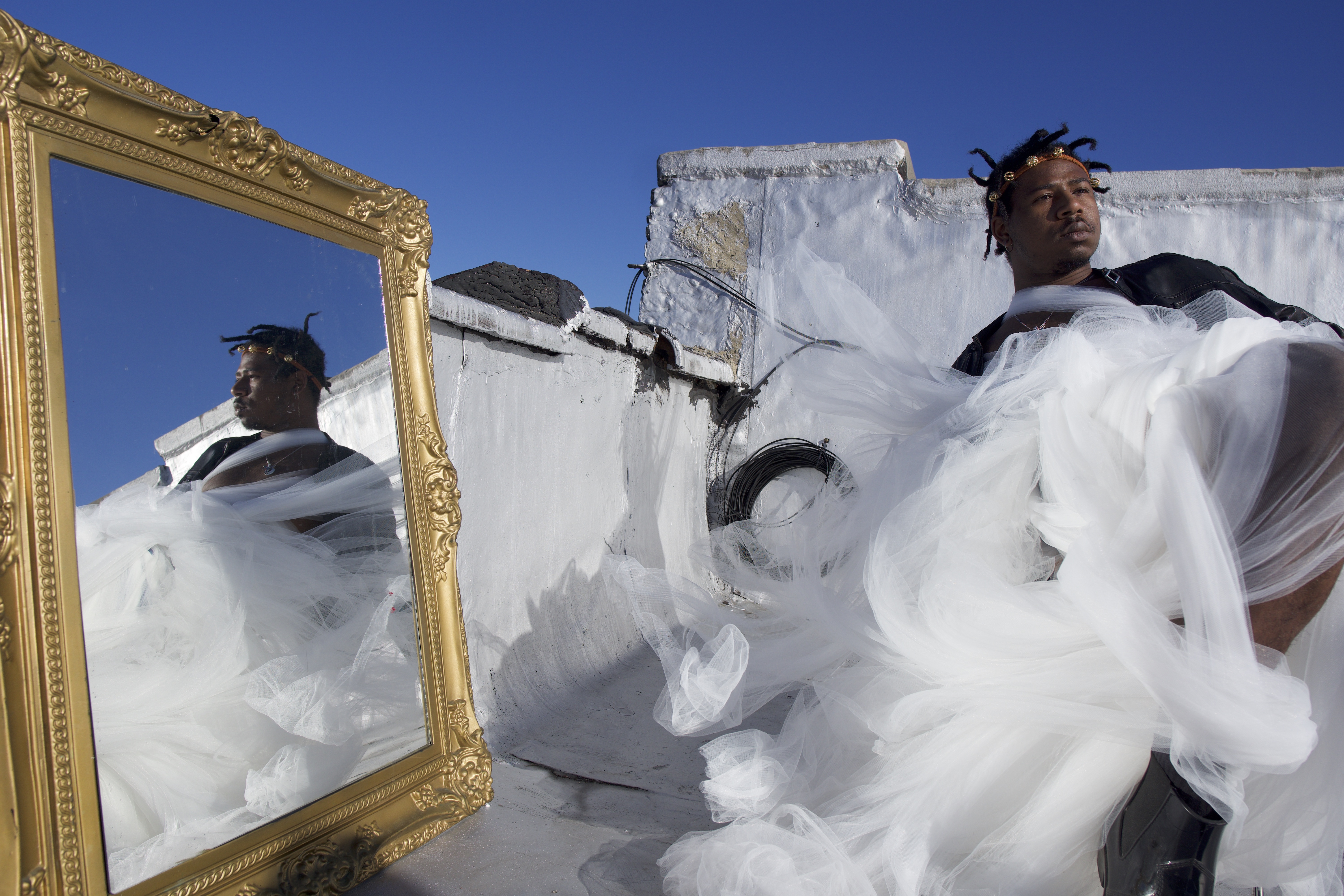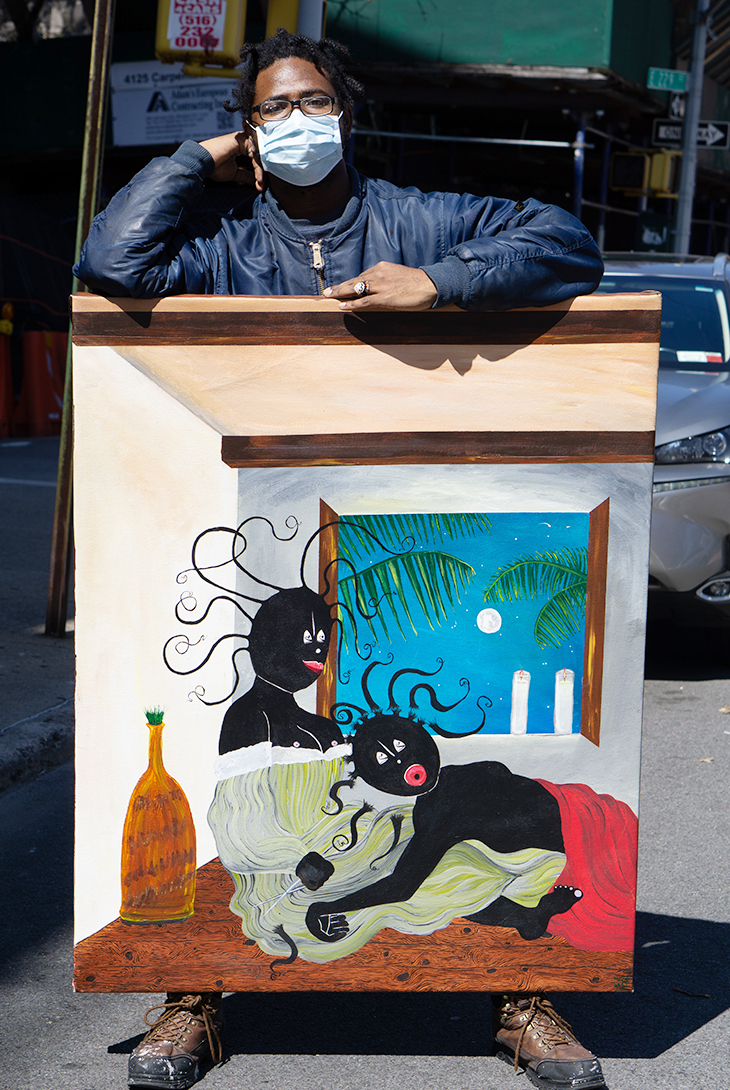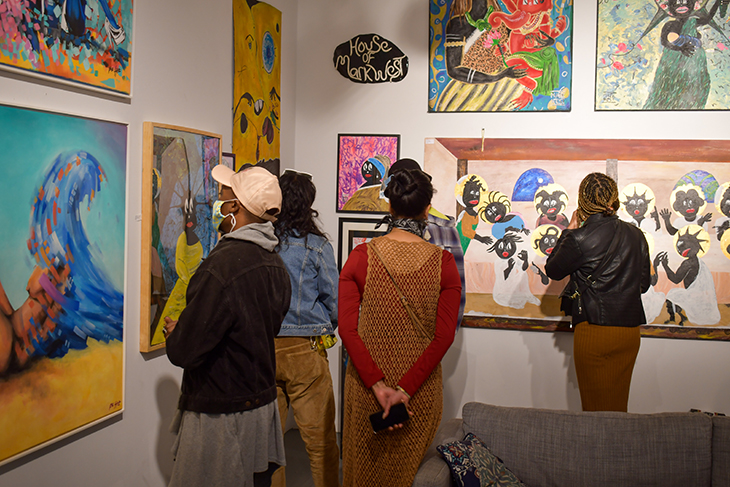
In his first months as a new college graduate in New York City, Humanities major Mark West ’17 bounced from one corporate job to another. He had left NYU Shanghai with a resume full of exciting experiences, but back in New York, he felt slightly adrift. None of the opportunities felt like quite the right fit. He realized that if he was going to find the right career, he would need to create one for himself.
“It definitely forced me to see that there was so much more out there, that life is something that you create and you can really carve your own path,” he said.
After West first landed a job in finance, he moved into his first New York apartment, complete with blank white walls. West created new paintings to cover his apartment and soon after, with the encouragement of his friends, started selling original paintings at an open-air art market on 14th Street in Manhattan. Surprisingly, while West did take one Chinese painting class at NYU Shanghai, this was the first time in his life that he was dedicated to the craft.
Art became a creative outlet and a possible career path—in one week West created 14 paintings. His first major painting sold for $2,500, and within six months, West was selling enough paintings to take a leap and quit his job to become an artist full-time, opening his first gallery in Long Island City in April 2019.
As a burgeoning artist, West said he had approached existing galleries hoping they would show his pieces, but found a lack of exhibition and mentorship opportunities for artists of color like himself. He set out to change that.

West with one of his paintings outside his gallery’s former space in the South Bronx.
At his gallery, West wanted to create a space for Black artists and others who had been left out of artistic opportunities in the past. “Even in New York City with so many art galleries all over the place, none of them are Black-owned,” he said. “There were all these artists and creators in New York City [and] yes there are so many opportunities, but these opportunities are for white artists. The people who created these opportunities are white. So it doesn’t matter that there are a million opportunities if you’re not the people who get accepted.”
“I realized that there was such a need for someone that looked like me to understand my art in its context. And that’s why I had to take that space because it didn’t exist,” he said. “As a Black artist, you get tired of showcasing in the outskirts of the city.”
West has moved his gallery three times - from Long Island City, to the South Bronx, to its current location in Bushwick. In each of the gallery’s locations, West has worked to ensure that the gallery serves as a gathering point for artists of color from across the city.
“We’re able to provide a space where people that look like me, and who don’t look like me, can find a community,” he said. “I like to think that we’re setting a standard for the art scene and Black artists, artists of color, queer artists, artists with disabilities.”
 West’s newest gallery space in Bushwick, Brooklyn celebrated its grand opening on October 9 and 10.
West’s newest gallery space in Bushwick, Brooklyn celebrated its grand opening on October 9 and 10.
During the pandemic, West has been quick to adapt the gallery to keep up with changing needs and circumstances. The gallery has successfully held several online shows, and over the past several months, has diversified into new forms of media and platforms, including hosting open mics and producing video programs.
Amid the rise in racial tensions and civic unrest in the US in recent months, the center has begun to focus on mental health, creating weekly healing circles for people to gather, recuperate and forge connections.
“I learned, especially from studying Chinese history, that people are really similar and that we all want the same things. We all want to feel important and respected and loved and valued,” he said. “You can go to China, you can go to different parts of Africa, you can see that people want love, they want friendship, they want to feel accepted and they want to feel appreciated, and that’s really what my business is about.”
As an organizer, West said he often works in the background to create change.
“I believe a lot of the real work when we talk about making the world a better place isn’t out in the street protesting, it’s sitting at a desk, building, meeting with people.” This ability to act as a community leader helps West to know he’s found the right path.
“Knowing a lot of people are going to be inspired by us makes us really strive for perfection and keep our intentions pure,” he said. “The more people you help, the bigger the gallery gets. Use your blessing, and it makes the blessing bigger.”

